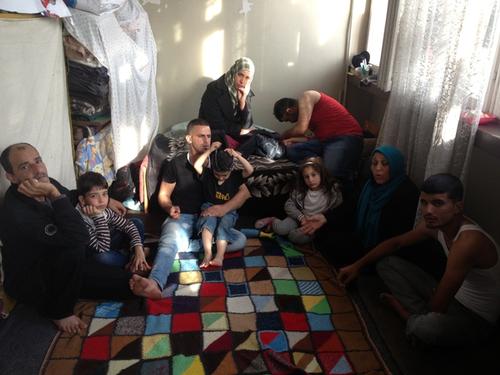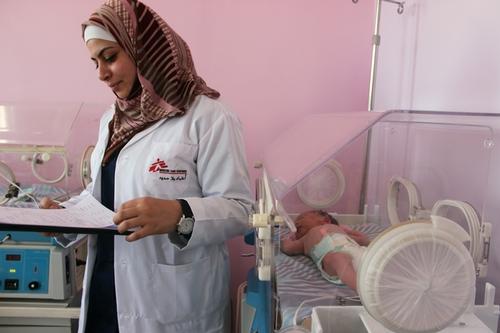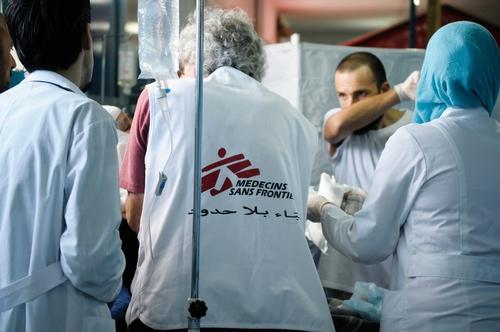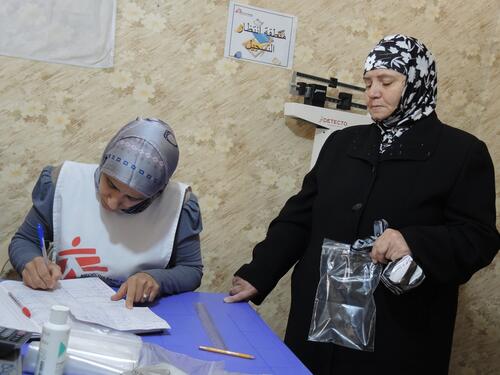Syrian refugees face appalling conditions in Bulgarian reception centres: Médecins Sans Frontières responds in the Bulgarian capital
In Sofia and Harmanli in the Bulgarian province of Haskovo, Médecins Sans Frontières (MSF) teams have witnessed appalling conditions in reception centres and a disastrous lack of medical assistance for refugees. As a matter or urgency, MSF has begun medical activities and distributions of relief items in three reception centres in the Bulgarian capital and in the south-east of the country. The organisation calls on the Bulgarian and European authorities to find rapid and concrete solutions for improving the reception conditions of asylum seekers.
Desperate families denied access to Europe
Since January, nearly 10,000 migrants, the majority Syrian, have arrived in Bulgaria. Many Syrian families fleeing the war arrive exhausted because they have had to find ways around the border controls along the Bulgaria-Turkey border. “Today access to Europe has become virtually impossible for refugees, including Syrians fleeing the horrors of war,” says Ioanna Kotsioni, head of mission for MSF in Bulgaria. “Walls are being built in Greece, and soon in Bulgaria, forcing the most desperate to seek ever more dangerous routes such as the islands in the Aegean sea.”

Bulgaria failing to meet international standards
On arrival in Bulgaria, hundreds of people find their only option is to sleep outside in unheated tents, while others crowd together in disused school classrooms because the reception centres are unable to cope with these numbers of people. “Despite some measures taken by the Bulgarian authorities, the reception conditions remain unacceptable,” says Kotsioni. “These people live in overcrowded centres, sometimes with just one toilet for fifty people. Even more worrying is the concern for families who do not receive enough food to eat.” According to European standards, Bulgaria has the responsibility to ensure access to medical and psychological care for asylum seekers, as well as specialised care to particularly vulnerable groups such as victims of torture, victims of sexual violence or people with a disability. Nevertheless, medical care is not systematically provided for aslyum seekers.
These people live in overcrowded centres, sometimes with just one toilet for fifty people. Even more worrying is the concern for families who do not receive enough food to eat.Ioanna Kotsioni, head of mission for MSF in Bulgaria
MSF commences urgently needed activities
To respond to this lack of assistance, MSF teams have commenced activities in two reception centres in Sofia and will shortly open a health post in a reception centre in Harmanli. These teams will provide free primary healthcare and psychological support for the refugees. “There are many people with chronic diseases who need regular medical follow-up,” says Colette Gadenne, coordinator of MSF’s assessment visit in Bulgaria. “These reception conditions will only deepen the psychological suffering of these victims of a terrible war.”
In the coming days, MSF will organise the distribution of relief kits, including blankets, clothes and items of hygiene. These actions alone will not solve the crucial problem of the reception conditions for asylum seekers in Bulgaria. “Winter is coming and the situation could get a lot worse,” says Gadenne. “Bulgaria and the European Union must urgently take steps to ensure adequate and humane reception conditions for people in distress who continue to flee the war.”
MSF activities in Europe
In Italy, MSF provides technical support to help with the control of infectious diseases in several centres in Rome and Sicily. Supporting the Italian health authorities, an MSF team is on call 24 hours a day to provide emergency assistance for migrants arriving at the port and reception centre in Pozzallo (Sicily). The team also provides free consultations for migrants in an out patient health centre in Ragusa.
In Greece, MSF provides medical care for vulnerable people in Athens and for migrants detained in the Evros region. Since 2008, the organisation has been carrying out medical activities as and when needed for migrants who have recently arrived from the Aegean Islands, particularly from Lesbos and Evros.





